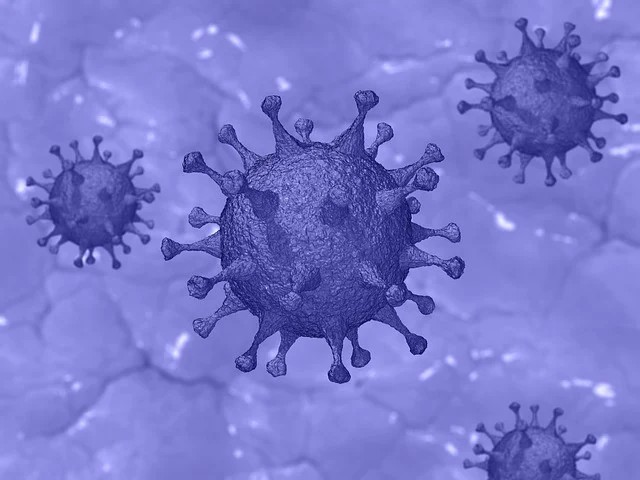A clinical trial has found that the combination of remdesivir plus a highly concentrated solution of antibodies that neutralize SARS-CoV-2, the virus that causes COVID-19, is no more effective than remdesivir alone for treating adults hospitalized with the disease. disease.
The trial also found that the safety of this experimental treatment may vary depending on whether a person naturally generates SARS-CoV-2 neutralizing antibodies before receiving it. Results from the multinational Phase 3 trial were published today in The Lancet .
The National Institute of Allergy and Infectious Diseases (NIAID), part of the National Institutes of Health, sponsored and funded the trial, called Inpatient Treatment with Anti-Coronavirus Immune Globulin, or ITAC.
The trial was conducted by the NIAID-funded International Network for Strategic Initiatives in Global HIV Trials (INSIGHT). Mark Polizzotto, M.D., Ph.D., director of the Clinical Center for Interventional Research at the Faculty of Health and Medicine at the Australian National University in Canberra, led the trial.
The antibody solution tested in the ITAC trial was anti-coronavirus hyperimmune intravenous immunoglobulin, or hIVIG.
The antibodies in the anti-coronavirus hIVIG came from the liquid portion of blood, or plasma, donated by healthy people who had recovered from COVID-19.
These antibodies were highly purified and concentrated, such that the anti-coronavirus hIVIG consistently contained several times more neutralizing antibodies against SARS-CoV-2 than those typically found in the plasma of people who have recovered from COVID-19. .
“In our quest to find safe and effective treatments for COVID-19, we hoped that adding anti-coronavirus immunoglobulin to a remdesivir regimen would give the immune system a boost to help suppress the virus early in hospitalization,” he said. the NIAID. Director Anthony S. Fauci , MD “Unfortunately, the ITAC trial showed that this strategy did not improve the health of adults hospitalized with COVID-19 and may be harmful for a certain subset of patients. “Studies are underway testing this strategy in adults not hospitalized earlier in the course of infection.”
Four companies collaborated to provide anti-coronavirus hIVIG for the trial: Emergent BioSolutions of Gaithersburg, Maryland; Grifols SA of Barcelona; CSL Behring of King of Prussia, Pennsylvania; and Takeda of Tokyo.
Remdesivir is a broad-spectrum antiviral currently approved by the US Food and Drug Administration and recommended for treating certain patients with COVID-19 based on data from several randomized clinical trials, including the COVID-19 Adaptive Treatment Trial. 19 sponsored by NIAID (ACTT-1) . The FDA granted approval to Gilead Sciences, Inc. of Foster City, California.
The ITAC study team enrolled nearly 600 hospitalized adults ages 18 and older who had COVID-19 symptoms for up to 12 days and did not have life-threatening organ dysfunction or organ failure. Enrollment took place at 63 sites in 11 countries in Africa, Asia, Europe, North America and South America between October 2020 and February 2021.
Study participants were randomly assigned to receive infusions of anti-coronavirus hIVIG and remdesivir or a placebo and remdesivir. . Neither the participants nor the study team, except for the pharmacists who prepared the infusions, knew who received which treatment regimen until the end of the trial. All participants also received supportive care that reflected local practice and national guidelines.
The primary objective of the trial was to compare the health status of participants seven days after starting treatment with hIVIG plus remdesivir with that of participants seven days after starting treatment with remdesivir alone.
The primary endpoint was an ordinal outcome with seven mutually exclusive categories ranging from no limiting symptoms due to COVID-19 to death. Safety was assessed on day seven with a composite outcome that included death, serious adverse events such as organ failure and serious infections, and serious events that prevented the performance of basic functions.
ITAC researchers found that participants who received hIVIG plus remdesivir were not in better health seven days after starting treatment compared to participants who received remdesivir alone. Similarly, participants who received HIVIG plus remdesivir had no improvement in other clinical outcomes during the 28-day follow-up period compared with those who received remdesivir alone.
The researchers also found no overall difference in safety at day seven for people who received HIVIG plus remdesivir compared to those who received remdesivir alone. However, the researchers also performed a prespecified subgroup safety analysis among participants who had developed neutralizing antibodies against SARS-CoV-2 before receiving hIVIG.
In this group, the odds of a worse safety outcome at day seven were 1.6 times higher for people who received HIVIG than for those who did not receive it. More research is needed to understand why. The difference was no longer evident on day 28.
Implications of all available evidence
Clinical trials completed to date do not support the use of passive antibody-based immunotherapies , including convalescent plasma, monoclonal antibodies, and hIVIG for the large population of hospitalized patients with severe COVID-19.
Unlike some monoclonal antibody trials, this trial showed no evidence of benefit in those patients with endogenous neutralizing anti-SARS-CoV-2 antibodies at the time of treatment, but suggested that the safety of hIVIG and potentially other passive immunotherapies may vary. according to the initial value. antibody status. Further evaluation could better define the appropriate target population for this and other passive SARS-CoV-2 immunotherapies.
Interpretation When administered with standard of care, including remdesivir, SARS-CoV-2 hIVIG did not demonstrate efficacy among hospitalized COVID-19 patients without end-stage organ failure. The safety of hIVIG may vary depending on the presence of endogenous neutralizing antibodies at the time of entry. |
The ITAC trial was partnered with the public-private partnership Accelerating COVID-19 Therapeutic Interventions and Vaccines (ACTIV) . More information about the trial is available in this NIAID news release and on ClinicalTrials.gov under study identifier NCT04546581 .
Reference: MN Polizzotto et al . Hyperimmune immunoglobulin for hospitalized patients with COVID-19 (ITAC): a randomized, double-blind, placebo-controlled phase 3 trial. The Lancet DOI: 10.1016/S0140-6736(22)00101-5 (2022).
















